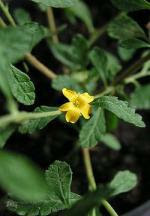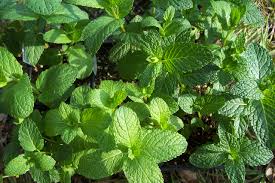Herbal Medicine Materia Medica and Herbal
Catmint:Carminative, anti-spasmodic, diaphoretic, nervine, astringent.Catnip is one of the traditional cold and flu remedies.Preparations & Dosage: Infusion: pour a cup of boiling water onto 2 teaspoonfuls of the dried herb and leave to infuse for 10-15 minutes. This should be drunk three times a day.
 Echinacea Spp.: Anti-microbial, immunomodulator, anti-catarrhal, alterative.,Echinacea is one of the primary remedies for helping the body rid itself of microbial infections...Preparations & Dosage: Decoction: put 1-2 teaspoonfuls of the root in one cup of water and bring it slowly to boil. Let it simmer for 10-15 minutes. This should be drunk three times a day. Tincture: take 1-4 ml of the tincture three times a day.
Echinacea Spp.: Anti-microbial, immunomodulator, anti-catarrhal, alterative.,Echinacea is one of the primary remedies for helping the body rid itself of microbial infections...Preparations & Dosage: Decoction: put 1-2 teaspoonfuls of the root in one cup of water and bring it slowly to boil. Let it simmer for 10-15 minutes. This should be drunk three times a day. Tincture: take 1-4 ml of the tincture three times a day.Celery Seeds: Anti-rheumatic, anti-inflammatory, diuretic, carminative, anti-spasmodic, nervine.Celery Seeds find their main use in the treatment of rheumatism,arthritis and gout. They are especially useful in rheumatoid arthritis where there is an associated mental depression...Preparations & Dosage: Infusion; pour a cup of boiling water onto l-2 teaspoonfuls of freshly crushed seeds. Leave to infuse for l0-l5 minutes. This should be drunk three times a day.
Peppermint:Carminative, anti-inflammatory, anti-spasmodic, aromatic,diaphoretic, anti-emetic, nervine, anti-microbial, analgesic.Peppermint is an excellent carminative, having a relaxingeffect on the muscles of the digestive system, combats flatulence andstimulates bile and digestive juice flow. It is used to relieve intestinalcolic, flatulent dyspepsia and associated conditionsPreparations &
Dosage: Infusion: pour a cup of boiling water onto aheaped teaspoonful of the dried herb and leave to infuse for l0 minutes... Thismay be drunk as often as desired.
Stone Root:Collinsonia canadensis,Root and rhizome., Anti-lithic, diuretic, diaphoretic.As its name suggests, Stone Root finds its main use in thetreatment and prevention of stone and gravel in the urinarysystem and the gall-bladder. It can be used as a prophylactic but is alsoexcellent when the body is in need of help in passing stones of gravel. It isalso a strong diuretic...
Preparations & Dosage: Decoction: put l-2 teaspoonfuls of the dried root in a cup of water, bring to boiling and simmer for l0-l5 minutes. This should be drunk three times a day.Tincture: take 1-2 ml of the tincture three times a day.
...
tags:HOMEOPATHY,Herbal Medicine Materia Medica,Stone Root:Collinsonia canadensis,Celery Seeds: Anti-rheumatic,








%2520-valeriana%2520officinalis.jpg)
